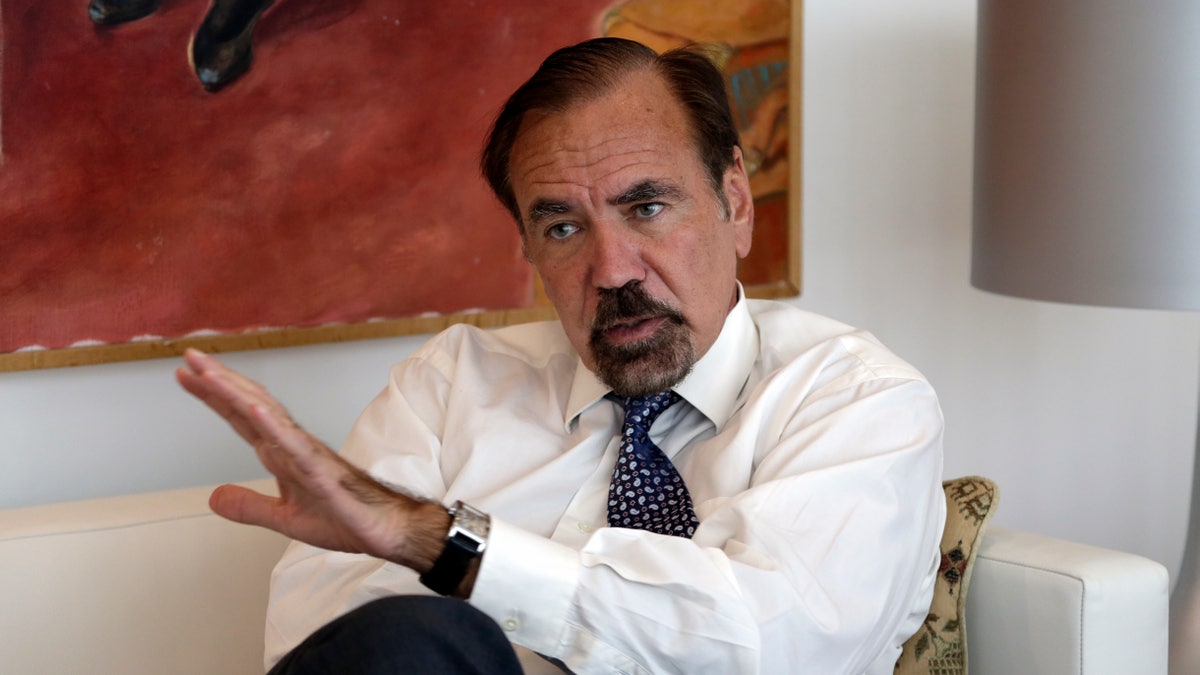
Developer and art collector Jorge Perez, one of Florida's powerful Cuban-American business leaders. (ap)
When Miami's new art museum opened in December, namesake Jorge Perez spoke easily about a once-taboo topic among Cuban-American powerbrokers: His desire to increase artistic exchanges with those on the communist island.
Then, last week, billionaire sugar baron Alfonso Fanjul — whose family's business was seized by Fidel Castro in 1959 — spoke publicly for the first time about investing back in Cuba.
Both men are among a growing number of powerful South Florida Cuban-American business, civic and political leaders breaking the long-held public line on U.S. relations with Cuba and the Castro government.
According to a poll released on Tuesday by the Atlantic Council, a Washington-based think tank, a clear majority of Americans support normalizing relations with Cuba: 56 percent of respondents nationally favored changing U.S. Cuba policy, a number that rose to 63 percent among Floridians.
Fanjul's comments were a bombshell among the elite Cuban exiles in South Florida, even though he did not advocate an end to the decades old U.S. embargo. In an interview with The Washington Post, the CEO of Fanjul Corp., who has long opposed the Cuban government, spoke of his recent trips to the island and his interest in bringing the family's vast sugar holdings back there.
For his part, Perez, an avowed capitalist and a major force behind Miami's revitalization, is unapologetic about his desire to see Cuban art in the Perez Art Museum Miami. Perez acknowledged that some artists may have ties to the Castro government but said the exchanges do more good than a unilateral policy against the island.
"Just like I am really anti-communist, I am also really anti-imperialist," he said.
On Friday, former Florida Gov. Charlie Crist, who is running for the office again, this time as a Democrat, said on Bill Maher's HBO show that he doesn't think the embargo has worked and agreed with Maher that Cuban Americans need to stand up to the Cuban regime.
Despite some support for Fanjul after his Post interview, the response from several Cuban exile political leaders was swift and harsh.
"I am outraged by reports that a fellow Cuban-American, who has witnessed the atrocities inflicted by the Castro regime, has apparently chosen short-term profit over standing with the Cuban people," said South Florida Republican Rep. Mario Diaz-Balart, whose family also fled the revolution.
Current Republican Gov. Rick Scott said Crist's statements were insulting.
He said: "Our Cuban community needs to be stood up for... The importance of maintaining the embargo is that it stands for the Cuban people's right to be free."
Fellow GOP representative Ileana Ros-Lehtinen posted on Twitter: "Talked about #Fanjul's pathetic idea of investing in the #Castro regime while #Cubans suffer."
But U.S. Rep. Joe Garcia, a Democrat and the son of Cuban exiles, said Fanjul was simply voicing the issues many Cuban-Americans wrestle with.
Since the embargo's imposition in the early 1960s, shortly after Fidel Castro's communist revolution overthrew a pro-U.S. military dictatorship, the policy has prohibited U.S. companies and citizens from conducting most trade with the island and, with some exceptions, visiting it. Until recently, politicians and business leaders who advocated for the embargo's elimination, or even loosening, incurred the wrath of the Cuban-American community, which had the money and power to make its views stick.
The Associated Press contributed to this report.
Follow us on twitter.com/foxnewslatino
Like us at facebook.com/foxnewslatino





















